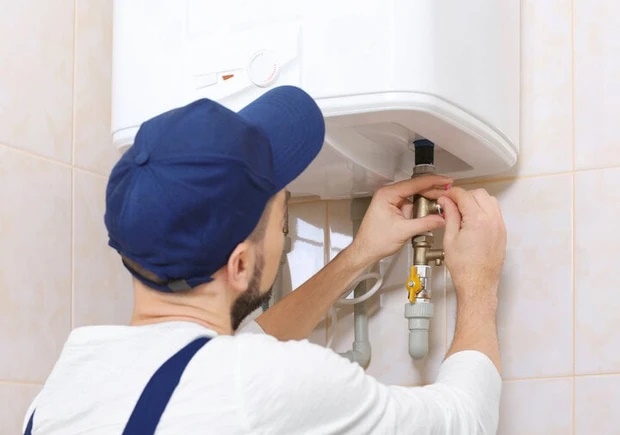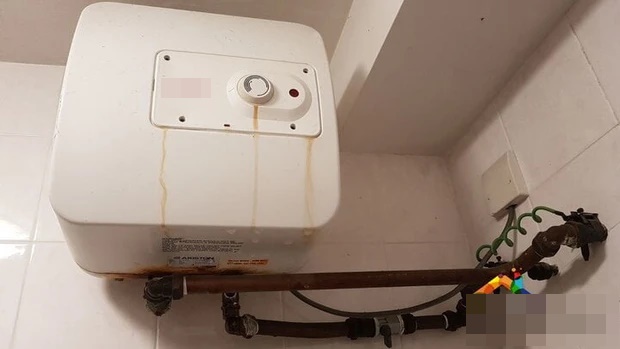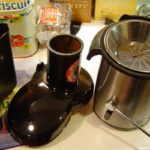Compared to other home appliances, water heaters have a limited lifespan and are prone to issues over time. It is important to be aware of the signs that your water heater is not functioning properly so that you can address them in a timely manner, avoiding sudden failures, costly repairs, and potential dangers.
Here are some warning signs that indicate you should stop using your water heater for maintenance and repairs, as outlined in an article on the website of Hanoi Power Corporation:
Rusty components
Since water heaters are primarily made of metal and are often in a moist environment, parts such as the connecting wires are prone to rusting after prolonged use. Rusty wires can break, causing water leaks and posing a risk to users, so they should be replaced as soon as signs of rusting appear.
Other parts such as screws, bolts, and temperature adjustment knobs should also be replaced when this condition arises.

Detecting these signs in your water heater means you should stop using it immediately: unusual noises, insufficient hot water, rusty components… (Photo: Nicholson Plumbing)
Unusual noises
If your water heater makes abnormal noises during use, it may be due to impurities in the water supply or a faulty pressure relief valve. The latter poses a significant danger. When you detect this sign, you should stop using the water heater immediately.
The pressure relief valve is responsible for releasing excess steam when the water in the tank is too hot, ensuring the safety of users. When this valve malfunctions, steam cannot escape, causing the tank to make noises. With steam trapped inside, the pressure in the tank can increase to dangerous levels, leading to an explosion.
When you hear noises coming from your water heater, you should cut off the power and call a professional to inspect and replace the valve.
Insufficient hot water
If your hot water supply decreases over time or you have to wait a long time to get hot water for bathing, it indicates a problem with your water heater. The most common cause is a malfunctioning heating element. For gas water heaters, the cause may be a faulty thermocouple or gas control valve.
Insufficient hot water can also be caused by deposits that accumulate over time, reducing the capacity of the tank and resulting in less available hot water. In some cases, a plumber can resolve this issue. However, if your water heater is old and the problem persists, replacing it is a more cost-effective solution.
Water leaks or discoloration
If you turn on the hot water and notice that the water coming out is leaking or discolored, you should stop using the water heater immediately. This may indicate corrosion inside the tank, a serious problem that needs immediate attention. Prolonged corrosion can lead to leaks and irreversible damage to the tank. Rusty water also reduces the water quality and can affect your health.
Regular maintenance and periodic flushing of your water heater can help prevent corrosion. Flushing the system (including draining water from the tank and removing sediment) is an excellent preventive measure against the formation of rust.
Water leakage

Do you see water pooling below the water heater? Detecting this sign means you should stop using it immediately as it is a very dangerous situation. (Photo: Everyworks)
If you notice water pooling anywhere below the water heater, you should stop using it as this is a very dangerous situation. Quickly turn off the water supply valve and call a plumber to repair the water pipe.
If the leak originates from the temperature and pressure relief valve, a plumber can replace the parts, fix the issue, and you won’t have to replace the entire tank. However, if the leakage is due to internal corrosion or the age of the heater, you will need to replace the water heater.
Source: VTC News






































